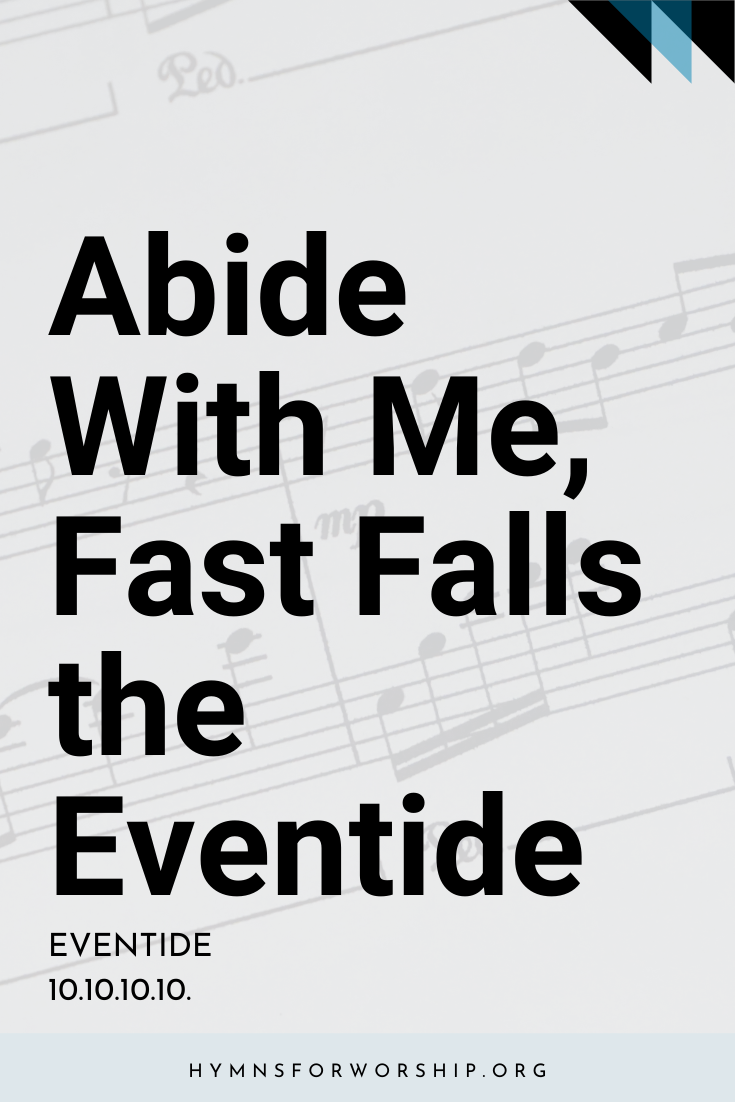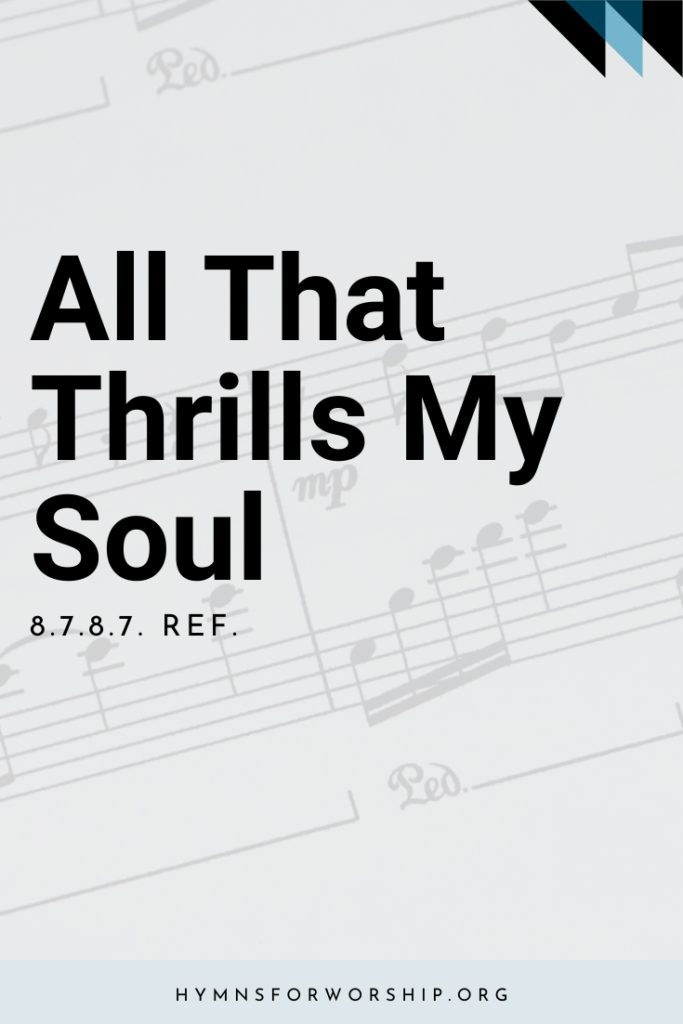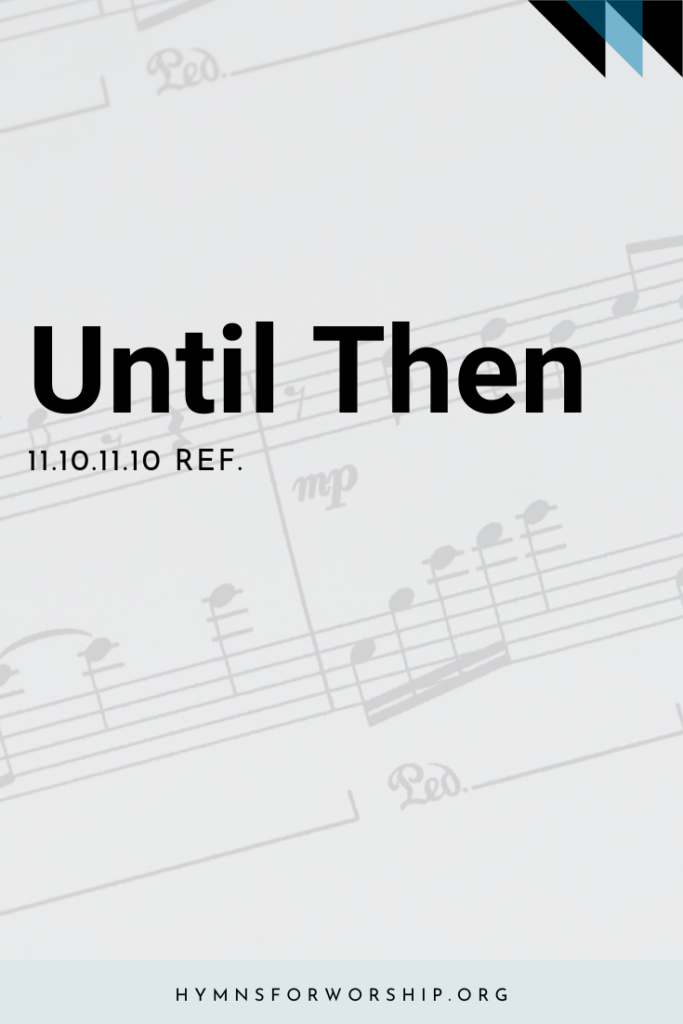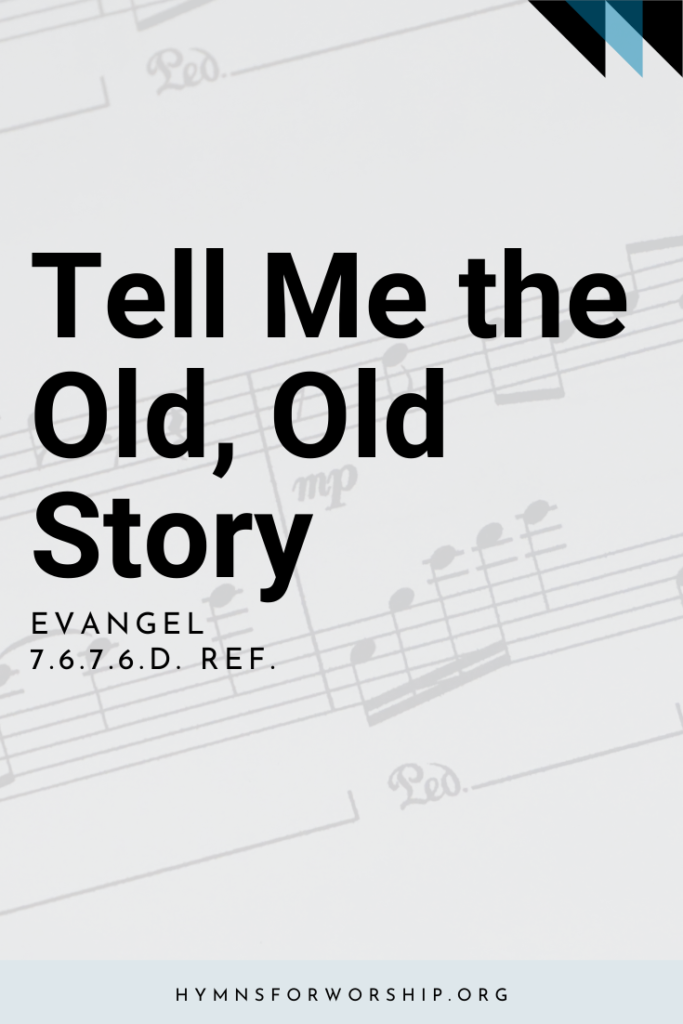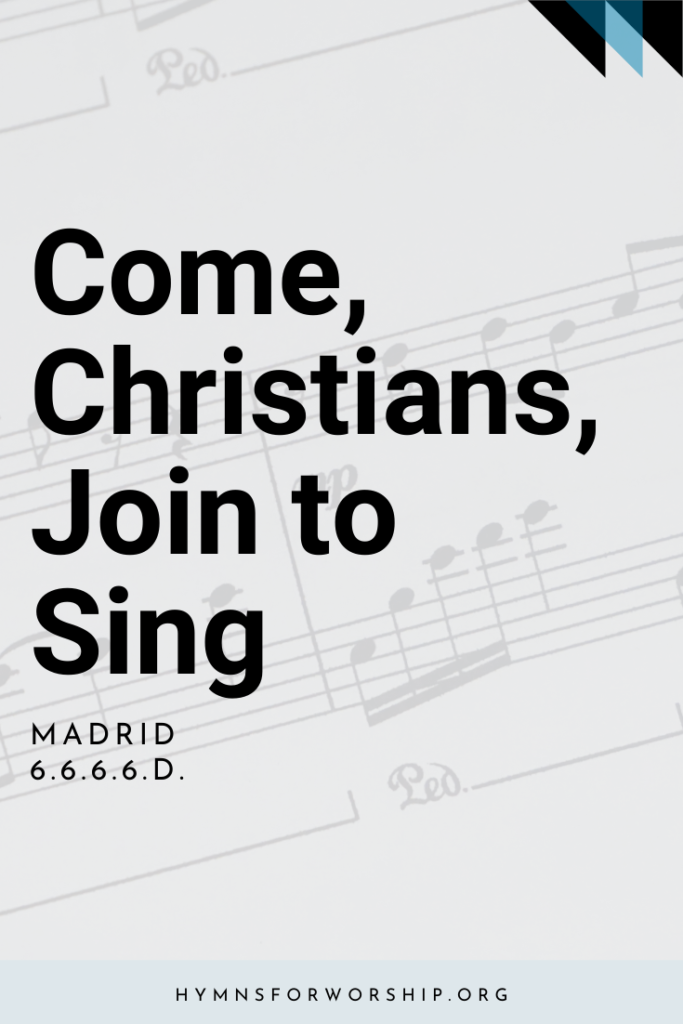WORSHIP >> EVENING WORSHIP
SDAH 50
Abide with me; fast falls the eventide;
The darkness deepens; Lord with me abide!
When other helpers fail and comforts flee,
Help of the helpless, O abide with me.
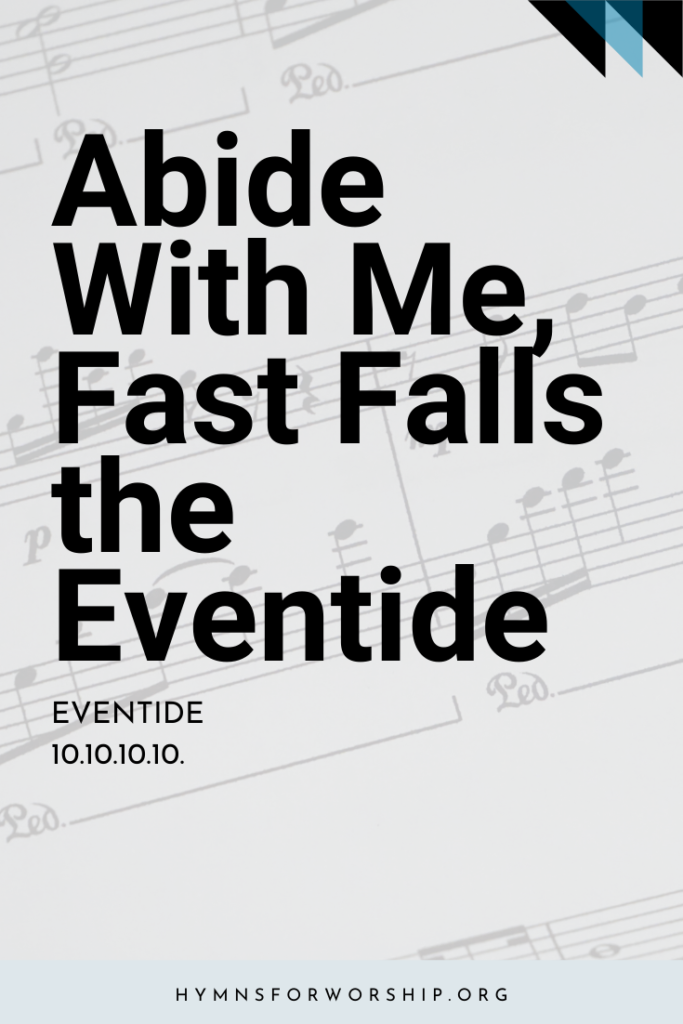
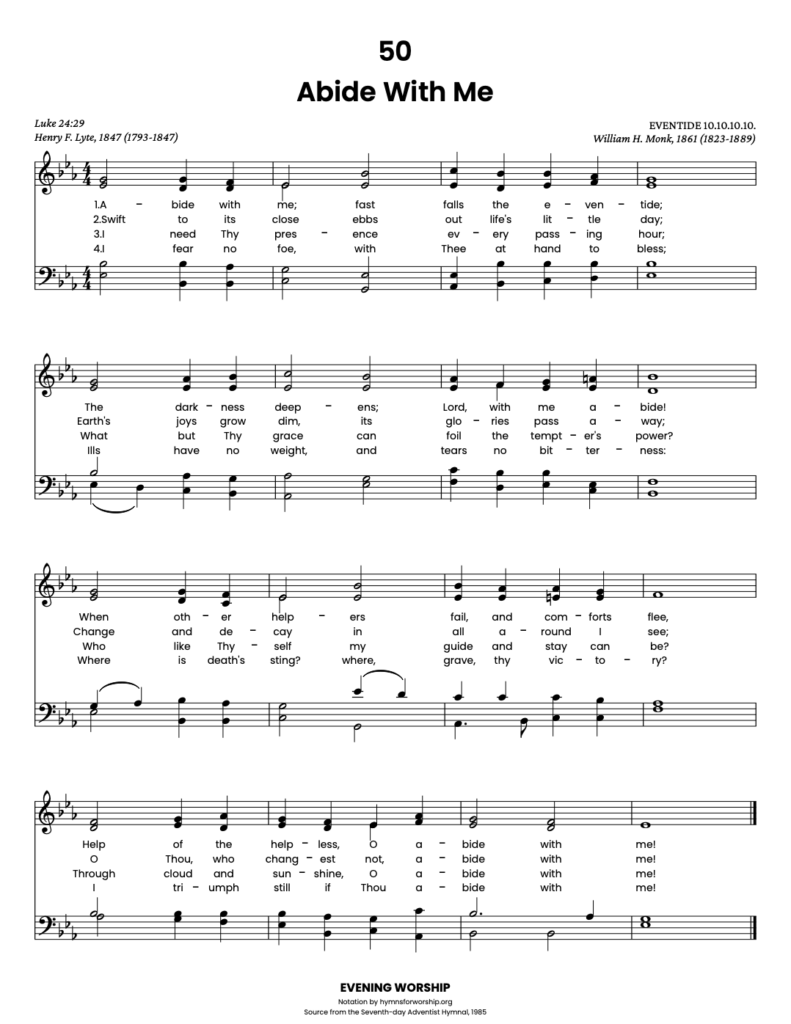
Get the hymn sheet in other keys here
For Worship Leaders
Make each hymn more meaningful with these helpful tools: Short, ready-to-use hymn introductions for church bulletins, multiple ways to introduce a hymn based on your worship theme and in-depth history and insights to enrich your song service.
Hymn Spotlight: Abide with Me
Though often sung as an evening hymn, Henry Francis Lyte (1793–1847) actually wrote Abide with Me as a farewell to life rather than to the day. Inspired by Luke 24:29, where the disciples urged the risen Christ to stay with them—“Abide with us: for it is toward evening, and the day is far spent”—Lyte wrote this hymn just before leaving for the Riviera to recover from illness. He passed away shortly after.
The tune EVENTIDE was composed in 1861 by William Henry Monk (1823–1889), who reportedly wrote it in just 10 minutes after a meeting. His widow later recalled that the melody was inspired by a moment of deep sorrow while watching a sunset, perfectly matching the hymn’s plea for God’s presence in life’s final moments.
This beloved hymn has brought comfort and strength to generations, reminding us that God’s presence remains with us through all of life’s changes, even in the shadow of death.


Text
1
Abide with me; fast falls the eventide;
The darkness deepens; Lord with me abide!
When other helpers fail and comforts flee,
Help of the helpless, O abide with me.
2
Swift to its close ebbs out life’s little day;
Earth’s joys grow dim; its glories pass away;
Change and decay in all around I see;
O Thou who changest not, abide with me.
3
I need Thy presence every passing hour.
What but Thy grace can foil the tempter’s power?
Who, like Thyself, my guide and stay can be?
Through cloud and sunshine, Lord, abide with me.
4
I fear no foe, with Thee at hand to bless;
Ills have no weight, and tears no bitterness.
Where is death’s sting? Where, grave, thy victory?
I triumph still, if Thou abide with me!

Hymn Info
Biblical Reference
(a) Luke 24:29 (b) Mal 3:6 (d) 1 Cor 15:55
Author
Henry F. Lyte (1793-1847)
Year Published
1847
Hymn Tune
EVENTIDE
Metrical Number
10.10.10.10.
Composer
William H. Monk (1823-1889)
Year Composed
1861
Theme
EVENING WORSHIP

